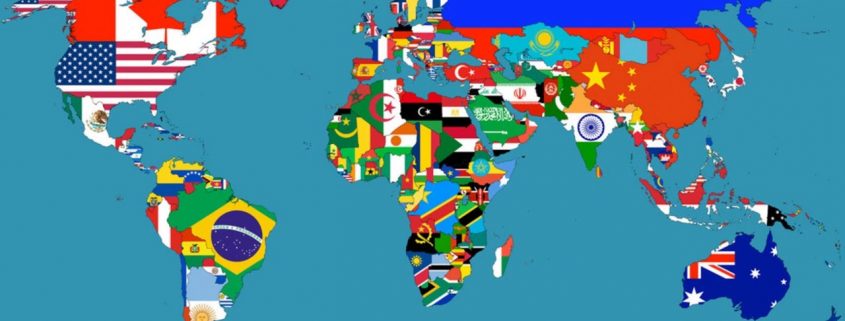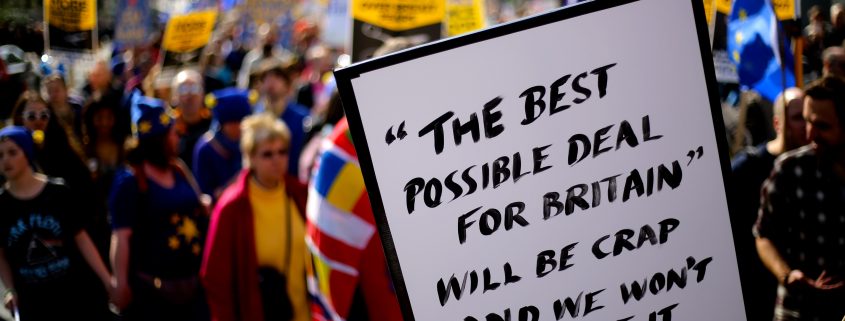Why people don’t need nationalism
Quite a lot of countries are headed into a bit of a nationalist streak, where populists are on the rise and traditional parties respond in kind by becoming more nationalist and xenophobic. The popular mantra of the nationalist is that the country should fend for its own needs, rather than be part of the world. America first, let’s pay for our NHS and the likes of that.
Quite apart from wether or not this succeeds in economic growth, there’s another thing that should worry the average voter who is considering the merits of the nationalist doctrine. And no, it’s not wether nationalism in the west is or is not Putin’s agenda. It probably is, because a less united West is in his interest.
The worrying part about countries reverting to nationalism is this: corporations aren’t bound to a nation, but they are part of nations. Corporations pay taxes and need to adhere to rules. States and governments have a purpose: to facilitate the lives of people. They do so using taxes and rules.
Governments are for people
Now, in democracies, people elect their government. All people are different, but in principle people generally want the same: food, housing, safety, love, physical health, sex, mental health, a disposable income, something to do and a little bit of luxury (or a lot, as it happens). The list goes on or varies, but it starts with the basics. The government’s job is to harmonize and facilitate these basics. It’s not an easy job, but one that has to be done, nevertheless.
Companies aren’t people
Companies, on the other hand, do not want food, safety, love, health or sex. They want profit. Not necessarily because they started out that way, but as they grow that is what it comes down to. Profit, and usually the freedom to make said profit the way they want. They need factories, offices and data centers. Warehouses and shops. And paying customers. They’ll take a monopoly if they can get it. The list goes on or varies, but it starts with the basics. The government’s job is to harmonize and facilitate these basics, while making sure these do not conflict with the interests of their primary stakeholder: the people.
A conflict of interests
In principle, these do conflict. Time and again, we’ve seen corporations fighting regulation that directly contributes to the quality and availability of food, housing, safety, physical heatlh, mental health, and disposable income of the people. Bad food is cheap to make and easy to sell, so corporations oppose quality regulations. Housing is scarce, so corporations could profit off them more without social housing. Safety costs money because safety regulations are expensive. Hence, companies oppose safety regulations. Health can get very expensive if left to a scarcely regulated market (as we can see in the US, for example), so companies advocate deregulation or self-regulation. The list goes on or varies, but these are the basics. The reason the people put up with companies is threefold:
- Companies also provide the things they want, even though they try to maximize their profits.
- Jobs: people want something to do, and jobs provide part of that opportunityand
- Disposable income. The most important one, for how would people pay for their needs without money from jobs?
Because of this, it is in the interest of governments to keep corporations happy. Large corporations provide lots of jobs and goods and services. However, in today’s world, corporations grow very large. Very, very large. Google is one of the tech giants of today. It’s revenue in 2017 was over one tenth of the UK tax revenue in total. That makes it a very powerful negotiator for most states: if Google wants to persuade a state to do something, the bargaining chip Google holds is very strong: it can give, or take away, lots of jobs (and therefore disposable income).
Saying ‘no’ to a corporation that has one tenth of the income your treasury has, has to be hard. But that is the UK, and in terms of absolute tax revenue, the UK is the 4th country in the world. Effectively, even Japan (number 2 in terms of tax revenue) wouldn’t be a very strong negotiator. A company like Google has a lot of strong stakes when it comes to negotiating with governments, but on the list of companies sorted by revenue, it’s not even in the top 30 in the world.
Tax cuts, tax cuts everywhere
So with all these companies that have that much power, governments are competing for the benefits of adhering to their wishes. The US gave big companies a huge tax break. The Netherlands did the same thing, giving away 1.4 billion euros in tax revenue just because companies asked for it. The reason? They might move their business elsewhere.
But the people will still want health, housing, food and safety. Along with other necesseties, like infrastructure. These all need to be paid for. But if governments are all being nationalistic and competing with other governments for the graces of the big corporations, where will the money come from for the services the government provides for its people? That’s correct. Out of the pockets of the people themselves. Essentially, governments are giving away tax money from their people to pay for the profits of big companies in the name of sticking up for their own people.
Instead of competing with tax breaks, governments should be unionizing to form a block that can hold up to these ever-growing companies. So that they can facilitate the people’s food, housing, safety, love, physical health, sex, mental health, a disposable income, something to do and a little bit of luxury (or a lot, as it happens). Can’t we just change the countless varieties of the nationalist mantra to something that would actually be good for something? Why not? Sure we can.
Humans first. Make people great again.


